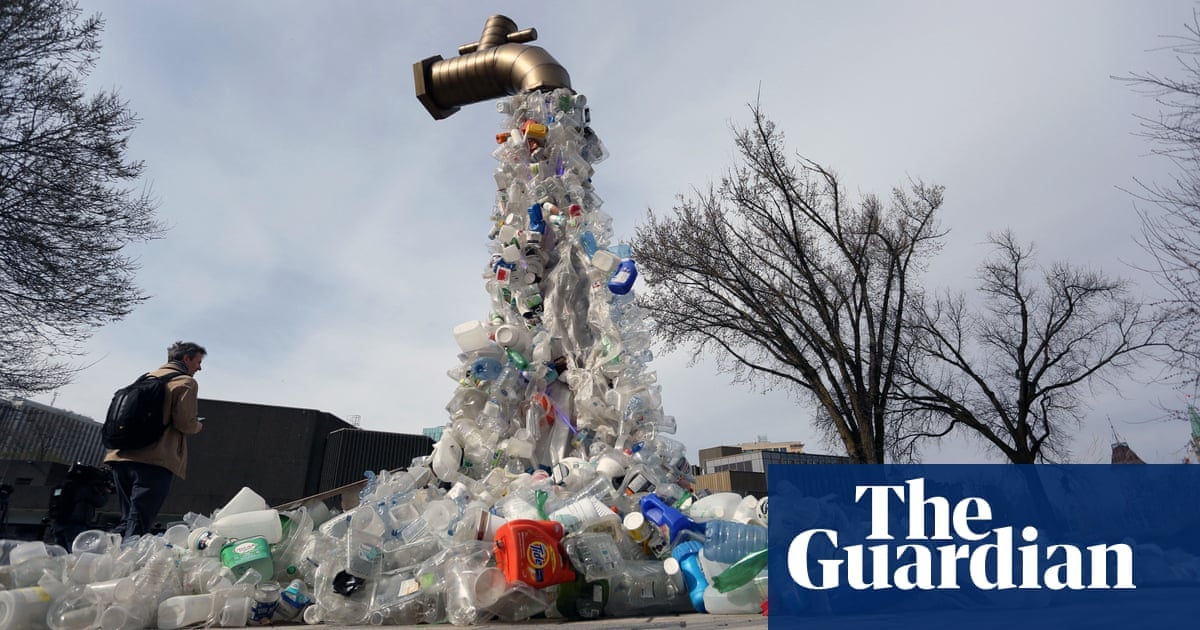Fossil fuel and petrochemical campaigners at Ottawa summit outnumber scientists, EU and Indigenous delegates
The number of fossil fuel and petrochemical industry lobbyists has increased by more than a third at UN talks to agree the first global treaty to cut plastic pollution, analysis shows.
Most plastic is made from fossil fuels via a chemical process known as cracking, and 196 lobbyists from both industries are at the UN talks in Ottawa, Canada, where countries are attempting to come to an agreement to curb plastic production as part of a treaty to cut global plastic waste, according to analysis by the Center for International Environmental Law (Ciel).
The 196 lobbyists registered for the talks represent a 37% increase from the 143 lobbyists registered at the last talks, in Nairobi. This in turn was a 36% increase on the previous year’s number. Increased plastic production is a major part of the fossil fuel industry’s plans for the future, and any attempts to curb production, such as the ones being discussed at the UN talks, are an obvious threat to their profits.


